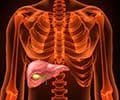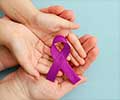Q: Which doctor should I consult for knowing more about self-medication and its adverse effects?
A: A General Practitioner (GP) would clinically evaluate the symptoms and recommend the therapy based on symptoms. The GP or Pharmacist would be able to guide on the merits and demerits of self-medication.
Q: What is the self-medication theory?
A: Self-medication theory of addiction is based on the hypothesis that substance abuse is a form of self-medication. It assumes that alcohol and drug abuse is a mechanism for people to overcome the conditions of mental health conditions, including depression. The theory can also be applied to non-substance or behavioral addictions.
Q: Why is self-medication harmful?
A: Self-medication is associated with many risks like incorrect diagnosis, adverse reactions, drug-drug interactions and concealing the primary underlying disease.
One of the causes for antibiotic resistance is the use of antibiotics without consulting the healthcare provider.
Q: What is the difference between self-medication and prescription medicine?
A: Prescription medicines are those which are available to individuals on prescription from a physician, following a consultation. Self-medication is the use of registered medicine, which is available legally without a prescription.






